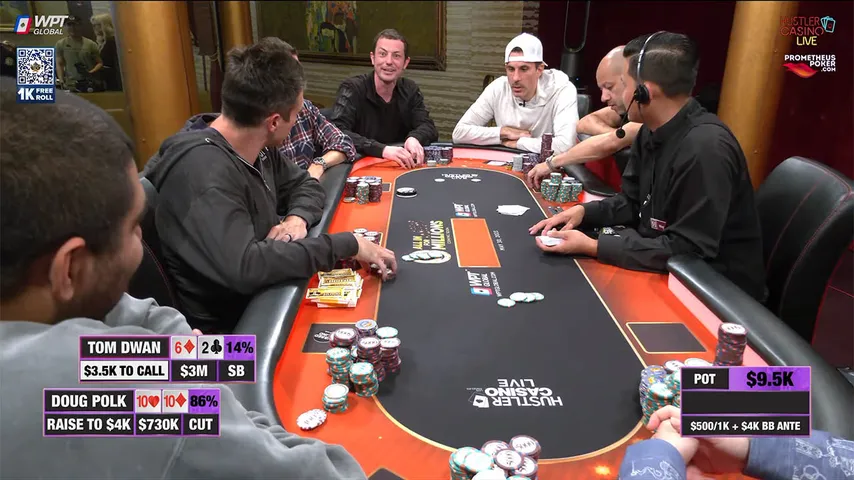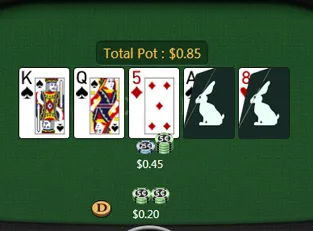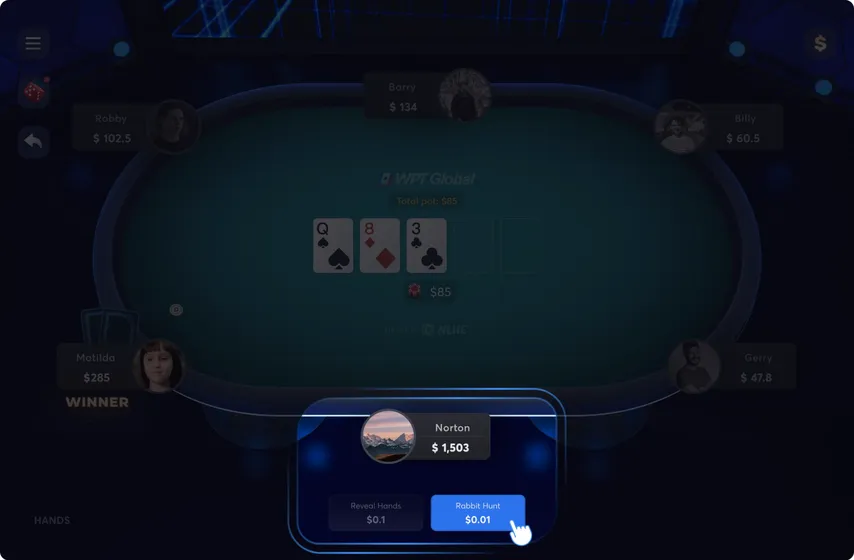Curiosity can often get the best of us, both in life and at the poker table. Whenever a player makes a tough fold before the river has been dealt, they will often wonder if the remaining cards would have flipped the outcome of the hand to them. That is where rabbit hunting can come into play, meaning a term for a move that will let you and the table get a look at what the final card would have been for free. Let’s learn more about rabbit hunting.
What is Rabbit Hunting in Poker
Simply put, the definition for rabbit hunting is when a player asks the dealer to reveal what the turn or river card would have been after the hand has already ended. In most cases for rabbit hunting, the hand has ended on the turn with just one card still to come. A player can request this, but the dealer does not have to abide by the request of the player. In fact, some live poker rooms have a term in their rules not allowing dealers to rabbit hunt, as it slows the game down a bit and can cause unnecessary problems if players can’t control their emotions. Rabbit hunting became more prominent during the TV poker boom where there were cameras on the table to change the viewing experience.
The Rabbit Hunt Cam

The poker boom in 2003 was driven largely by the addition of cameras at the poker table to reveal everyone’s hole cards. This made televised poker much more viewer-friendly, as they were able to get much more information about the hands as they were happening and were able to see how certain pros played certain hands. However, the player cams weren’t the only ones installed at the table. Poker TV producers were savvy enough to also install a rabbit hunt cam next to the dealer.
With this cam, the dealer would often flash the river to the cam if there was a big pot in order to heighten the drama and intrigue. Sometimes the dealer would reveal the card to the whole table, but more often than not, the cards were kept secret from the table, and only shown to the viewers at home.
Common Rabbit Hunt Situations
Rabbit hunts are most often requested when there are flush or straight draws on board, and a player is forced out of the pot before they can potentially realize their equity, or before they could potentially miss their draw. Some examples are listed below.
| Board | Hand | Rabbit Cam River Card |
|---|---|---|
| Ks Qs 3h 2h | As 4s | 7s. Flush would have come in |
| Ks Qs 3h 2h | 5c 4c | 6c. Straight would have come in |
| Ks Qs 3h 2h | Ah 5h | Jc. Flush and straight would have missed |
| Ks Qs 3h 2h | Kc Qc | Kh. Flush comes in, so does the full house |
Websites like GGPoker have taken the idea of rabbit hunting and ran with it, adding a potential rabbit hunt runout.
It should be noted that while the rabbit hunt usually only applies to the river, it can also occur if a player folds on the flop but wants their curiosity of the ending cards satisfied, as can be seen below.

WPT Global has even taken things one step further and started to offer its own rabbit hunting option but at a cost. It’s a feature of their online cash games.

If it’s free, it makes sense to do the rabbit hunt every so often, but know that it could affect how certain players view you. Taking it a step further, it could affect how some may even play against you.
Should You Ask for a Rabbit Hunt
Most poker pros don’t see the value in rabbit hunting, because they know that once the hand has ended, the only cards that mattered were the ones played, not those yet to come. If a pro sees a player constantly asking for a rabbit hunt, they will often perceive that player as a weaker amateur, so doing so could put a target on your back.
One should also consider the potential ramifications of the rabbit hunt backfiring. Say a player makes a disciplined fold of a flush or straight draw because their opponent has made a big bet that pushed them out of the pot. The pot odds weren’t right, so the math says it’s a correct fold. But if they ask for a rabbit hunt and find out that they ultimately would have made their draw, it could send some players down a spiral and negatively affect how they play future hands, costing them more money in the long run than they would have won in that one pot.
They may decide to forgo what the odds say and start chasing those draws, which the math says won’t come in that often. So you should consider many factors when asking for a rabbit hunt, and be sure that you are able to keep your head regardless of the outcome, or what you could have lost out on.



















